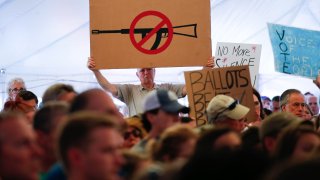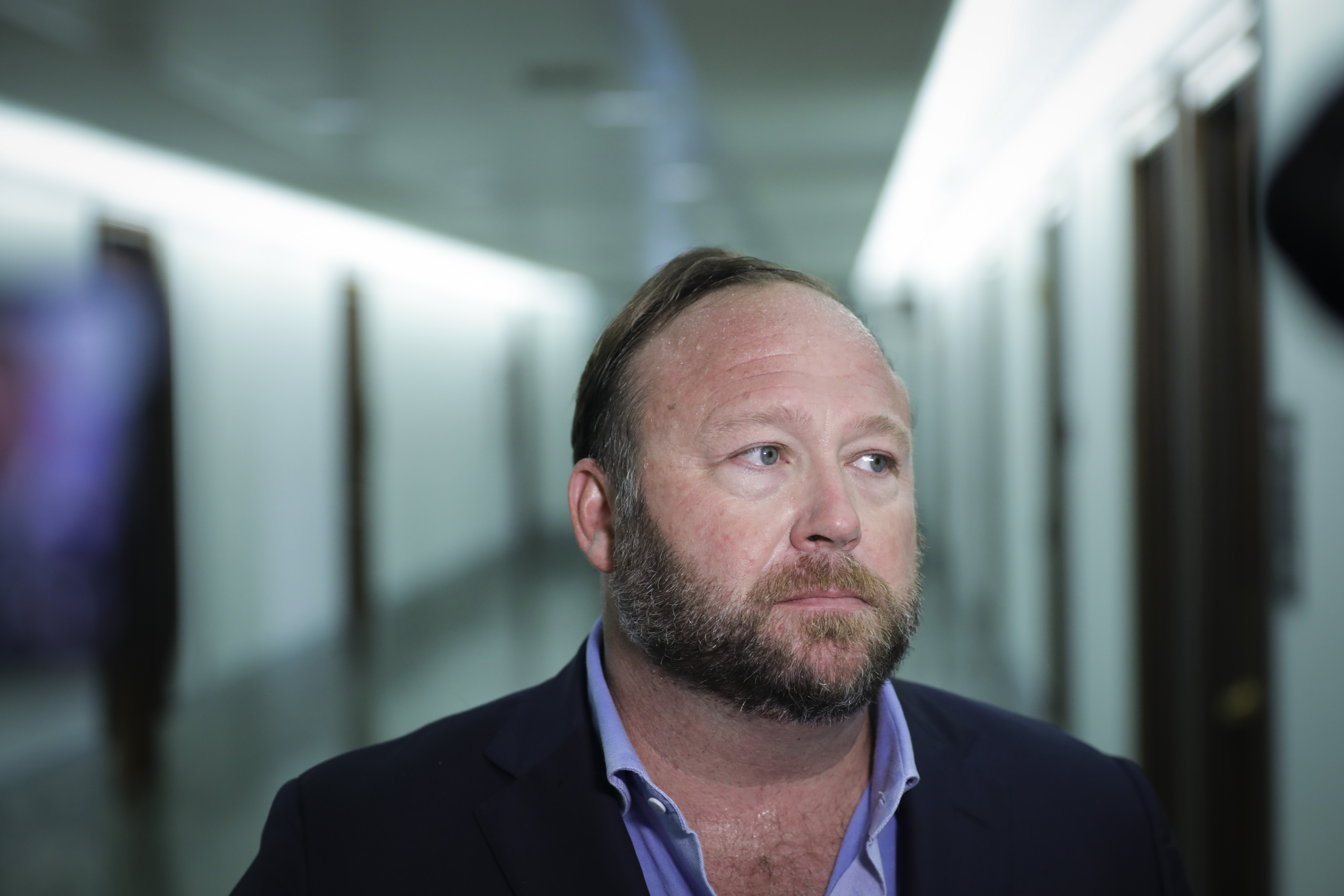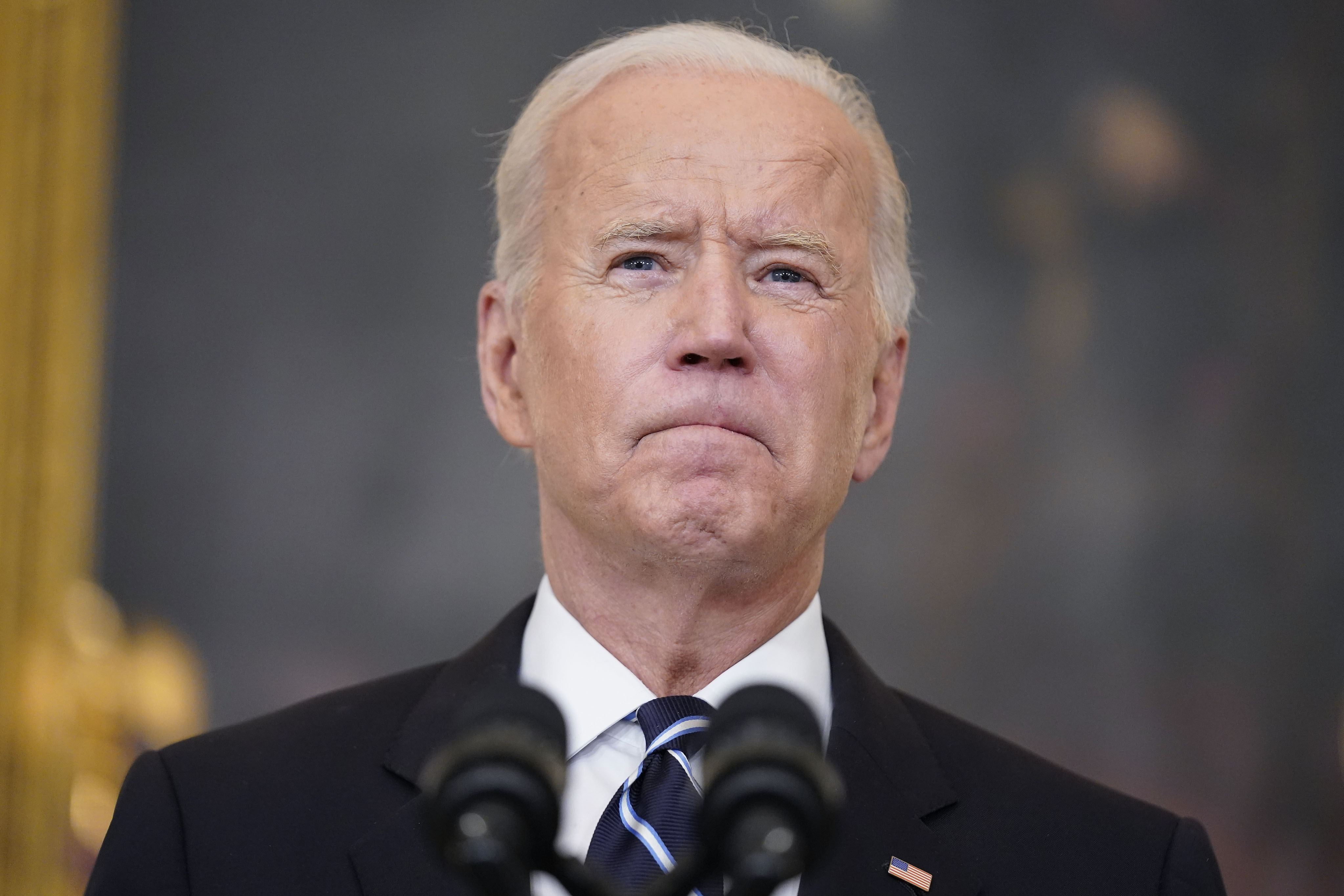
The landmark settlement in the wrongful death lawsuit brought by the families of loved ones killed in the Sandy Hook Elementary School shooting against firearms-maker Remington represents a major victory for gun violence victims. Legal experts say it's also a wake up call for an industry long thought to have blanket immunity under protections of a federal law.
Insurers for the now-bankrupt Remington Arms agreed to pay $73 million to settle the case. As part of the settlement, the families will also make public company documents obtained during the discovery phase that showed how Remington marketed the model of AR-15-style rifle used by the 20-year-old gunman.
Nicole Hockley, whose 6-year-old son was among the 20 first-graders and six educators killed on Dec. 14, 2012, said at news conference last week that the families’ victory sends a message to gun manufacturers, insurers and the banking industry that “this is a high-risk market, it is not profitable, and you will be held accountable.”
The families said the purpose of their lawsuit was to prevent future mass shootings by forcing gun companies to be more responsible with their products and how they market them.
Feeling out of the loop? We'll catch you up on the Chicago news you need to know. Sign up for the weekly Chicago Catch-Up newsletter here.
Josh Horwitz, executive director of the Coalition to Stop Gun Violence, told NBC the settlement also puts the gun industry on notice that its liability shield isn’t all-inclusive.
The families prevailed on a very unique set of circumstances and Horwitz acknowledges that suing the firearms industry remains difficult, with many previous plaintiffs being denied their day in court.
“That's really not true justice, but it's a path, a step on the way to justice,” Horwitz said. “For other families, they'll never experience this day because Congress has limited their ability to get justice.”
Finding the Loophole to a Federal Barrier
In 2005, the Republican-controlled Congress granted gun manufacturers immunity from lawsuits for crimes committed with their products under a federal law known as the Protection of Lawful Commerce in Arms Act. The PLCAA, signed by then-President George W. Bush, was hailed by gun rights groups, including the National Rifle Association.
However, the law included an exception for cases in which a gun manufacturer “knowingly violated a State or Federal statute applicable to the sale or marketing of the product.”
It was this loophole that Sandy Hook families used to hold Remington liable and filed a lawsuit in December 2014, saying the company violated Connecticut's Unfair Trade Practices Act, a decades-old consumer protection law related to the sale and marketing of firearms.
The move sparked a years-long legal battle questioning the validity of the lawsuit and the case ping-ponged between state and federal courts with differing views on the exception as Remington sought to quash it. After Connecticut's high court ruled in the families' favor in April 2019, Remington appealed to the U.S. Supreme Court, which opted not to hear the gun maker's challenge and thus allowed a trial to proceed.
The plaintiffs had a unique case given that it wasn't based on a negligence or product liability claim, but rather on marketing and advertising violations, said William Dunlap, a law professor at Quinnipiac University.
“The marketing that Remington engaged in may very well have violated the law, and so it gave the plaintiffs here an opportunity to take it to court and let a jury decide that,” Dunlap said in a phone interview with NBC.
The civil court case in Connecticut focused on how the firearm used by the Newtown shooter — a Bushmaster XM15-E2S rifle — was marketed, alleging it targeted younger, at-risk males in advertising and product placement in violent video games. In one of Remington’s ads, it features the rifle against a plain backdrop and the phrase: “Consider Your Man Card Reissued.”
Remington had argued there was no evidence to establish that its marketing had anything to do with the shooting.
David Schultz, a University of Minnesota state constitutional law professor, told NBC Remington's insurance companies likely chose to settle because the Sandy Hook case involved child victims, something a jury would sympathized with, and the prospect of losing at trial could've been more costly.
“Remington did not want to take a chance in going into state court and potentially having a much larger verdict against it under state law, which would perhaps set precedence for other states to enact similar laws,” Schultz said.
More Sandy Hook Coverage:
As part of the settlement, Remington agreed to allow the release of internal documents shedding light on its marketing strategy for the weapon, something Dunlap said could be the most important part of the deal.
“It will give the public and it will give state legislatures an insight into how the gun companies market these dangerous weapons,” Dunlap said. “This could have an effect on other gun manufacturers. And I suspect that many of them do the same sort of marketing judgments that Remington was making.”
Insurers that service the gun industry have no doubt taken note of the Sandy Hook settlement, and the staggering amount Remington's insurers were forced to pay will likely prompt other insurance companies into pressuring their clients to avoid similar marketing practices because of the vulnerability to legal action. Schultz said higher premiums are also a possibility "to pressure gun companies to take actions to lower their litigation risk."
The last major settlement with a firearms manufacturer for a gun violence case was in 2004 — a year before Congress passed PLCAA — when Bushmaster agreed to pay $550,000 to the families of the victims in the D.C. sniper shootings case.
Schultz raised concerns that the settlement could incentivize gun-rights advocates to lobby conservative lawmakers in Congress for more protections under the federal immunity law.
“I'm expecting to see Republicans now push for tighter federal regulation that will try to prevent these future lawsuits that will preempt states from being able to do what Connecticut did,” Schultz said.
What Will This Mean for Future Lawsuits Against Gunmakers?
Whether similar lawsuits can proceed against other gun makers remains unsettled because the U.S. Supreme Court did not weigh in on the exception to the 2005 immunity law used by the Sandy Hook families.
Still, the settlement does offer hope to state governments and gun-control advocates that legal claims based on consumer protection statutes can now potentially survive the PLCAA barrier.
Many states have laws similar to Connecticut’s consumer protections clause, according to the National Consumer Law Center. And several states, including California and New Jersey, are considering similar measures as “an alternative route” to address gun control.
New York adopted a law last year declaring anyone responsible for the “illegal or unreasonable sale, manufacture, distribution, importing or marketing of firearms” could be held responsible for causing a “public nuisance."
However, the law's constitutionality is being challenged in court, and it’s not yet clear whether it will be able to hold up to the “predicate exception” that Connecticut’s statute did.
The Sandy Hook case came together under a unique set of circumstances, and is unlikely to unleash a flood of lawsuits.
“This is going to be very state specific,” Horwitz said. “Some states’ suits will be able to go forward, and others they will not.”
NBC's Danielle Abreu contributed to this report.



